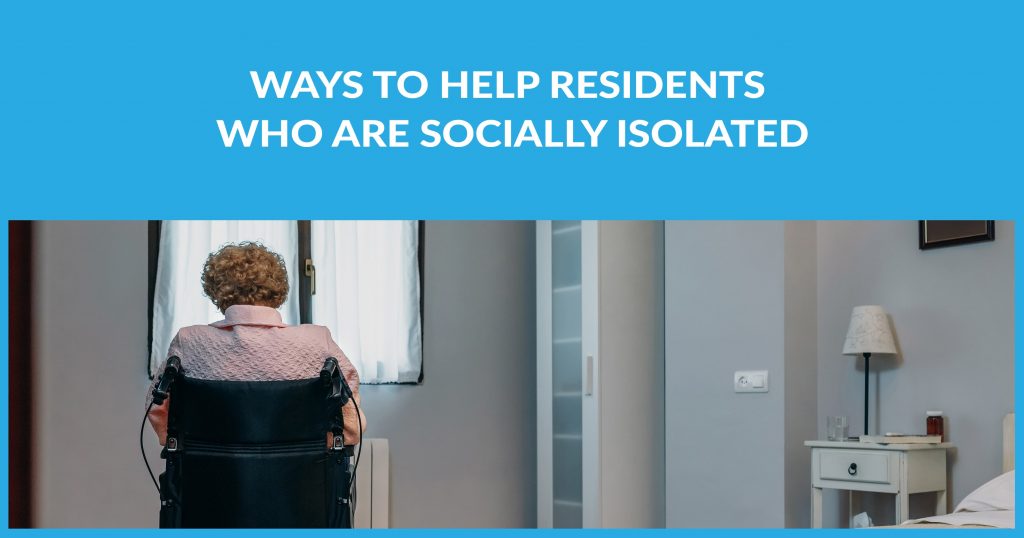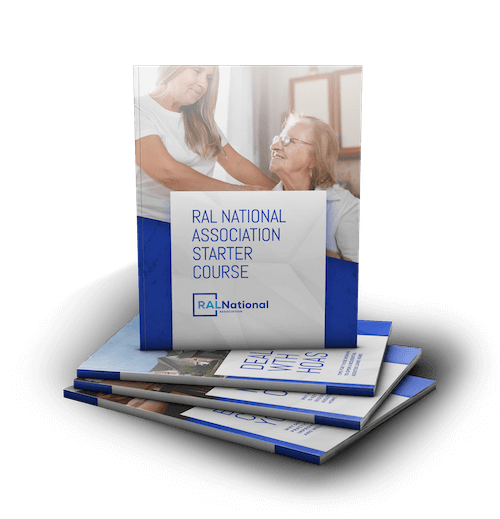How can you tell if residents are suffering from isolation or simply like to keep to themselves?
There are many concerns that impact seniors who experience the isolation that will stun most readers. Senior isolation is not inevitable, and it is reversible. Professional residential assisted living caregivers who have HHA Certification must understand the facts in order to foil feelings of loneliness as seniors age. There are critical concerns about how isolation impacts seniors and poses red flags for physical health and mental wellness.
10 MAJOR CONCERNS ABOUT SENIOR ISOLATION
- Senior isolation increases the risk of mortality.
- Feelings of loneliness can negatively affect both physical and mental health.
- Perceived loneliness contributes to cognitive decline and risk of dementia.
- Social isolation makes seniors more vulnerable to elder abuse.
- Social isolation in seniors is linked to long-term illness.
- Loneliness in seniors is a major risk factor for depression.
- Loneliness causes high blood pressure.
- Socially isolated seniors are more pessimistic about the future.
- Isolated seniors are more likely to need long-term care.
- Lonely people are more likely to engage in unhealthy behavior.
Since some people like to keep to themselves, isolation isn’t always easy to recognize, and it’s even more complicated to combat. However, it is critically important to take the proper steps to ensure that assisted living homes are not isolating residents. Some older individuals used to get a thrill out of time spent interacting with family and friends. Unfortunately, as they get older, a variety of circumstances cause interactions to dwindle. Sometimes, interfacing with others diminishes completely. Ordinarily, one would assume that relocating to a senior community with plenty of people would help ease the social isolation. This assumption is often wrong. These once-sociable seniors end up sitting in their own rooms watching TV. Maybe isolation feels safer for some. It’s less intimidating than venturing out in the hallway, finding new friends and engaging with strangers. As a result, social isolation can increase in assisted living homes, if it is not carefully monitored and consistently managed.
SUBJECTIVE VERSUS OBJECTIVE ISOLATION
It is difficult to deal with residents experiencing isolation without understanding all the working components.
I. There Are Two Types of Isolation:
- Subjective isolation refers to how individual experience is perceived internally.
- Objective isolation is a quantifiable status that can be determined outside of an individual’s perception.
II. Examples of Subjective and Objective Isolation:
- Subjective Isolation: Measured by a sense of loneliness, quality of relationships, quality of social support, sense of belonging, and meaningful social engagement.
- Objective Isolation: Measured by the size and structure of the social network, type and amount of social support, frequency of contacts, amount of participation in social activities, and a conduciveness of building social connectivity.
OVERLOOKED SOCIAL ISOLATION
The result of ongoing social isolation is detrimental to the health of seniors. This is why Residential Assisted Living National Association is teaching assisted living homeowners and operators on how to re-engage socially isolated seniors in new ways. Residents need choices as to how they prefer to communicate and connect with others. According to the American Association of Retired Persons (AARP), about 8 million people over age 50 are affected by isolation. The same report indicates that prolonged isolation poses a health risk as severe as smoking 15 cigarettes a day. Research across the board shows that prolonged isolation can lead to a weakened immune system, heart disease, depression, and even dementia.
CONNECTING TO COMBAT ISOLATION
Creating connections causes residents to hurdle over the obstacle of isolation. Caregivers can find creative ways to connect individuals with similar interests, backgrounds, and hobbies. RAL homes should enable family members to get a glimpse into what’s going on in their loved one’s lives. This could be done by means of routine phone calls, video chats, and various smartphone apps like FaceTime, Skype, and WhatsApp. It is important to keep residents connected.
FOCUS ON 4 TYPES OF CONNECTIONS
- Connecting residents to each other.
- Connecting family members to residents.
- Connecting staff to residents.
- Connecting vision/hearing impaired residents.
Encouraging RAL staff to converse with seniors allows them to become better acquainted and accessible to each resident. Impaired individuals are particularly vulnerable. Some assisted living homes have started using Alexa to help residents who are visually or hearing impaired. Augmented communication devices lead to increased engagement – more engagement combats isolation.
SENIORS EMBRACING TECHNOLOGY
We are living in the age of technology, and recent studies show that many seniors are refusing to get left behind. Over the past five years, older adults are accepting technology, especially as a means of communicating. Technology is considered a necessity in today’s society – and seniors are escaping the era of allowing age and aptitude to handicap them. The need to make meaningful connections is overcoming generational gaps. Aging successfully is difficult to do without utilizing digital devices. Regardless of the level of technological experience, residential assisted living homes are empowering seniors to embrace the future. The future is now. This is why RALNA is empowering the industry with the technological fuel needed to empower seniors to connect. Seniors are embracing the concept, and the most critical factor of success is the utilization.
INSPIRING THE USE OF TECHNOLOGY
Start by using technology around seniors in residential assisted living homes. In order to inspire members to adopt technology, they need to witness it in action and see the results. When caregivers use technology frequently, it inspires residents to gain interest, get engaged, and accelerate their adoption of integrating devices. This is also important because increased technological involvement has the potential to increase life expectancy and length of stay in residential assisted living homes. Use it or lose it’s more than a fancy cliché when it comes to technology, it can be a matter of life or death for seniors aiming to avoid isolation or recover from it.











